HTC Sensation vs Samsung Galaxy S2
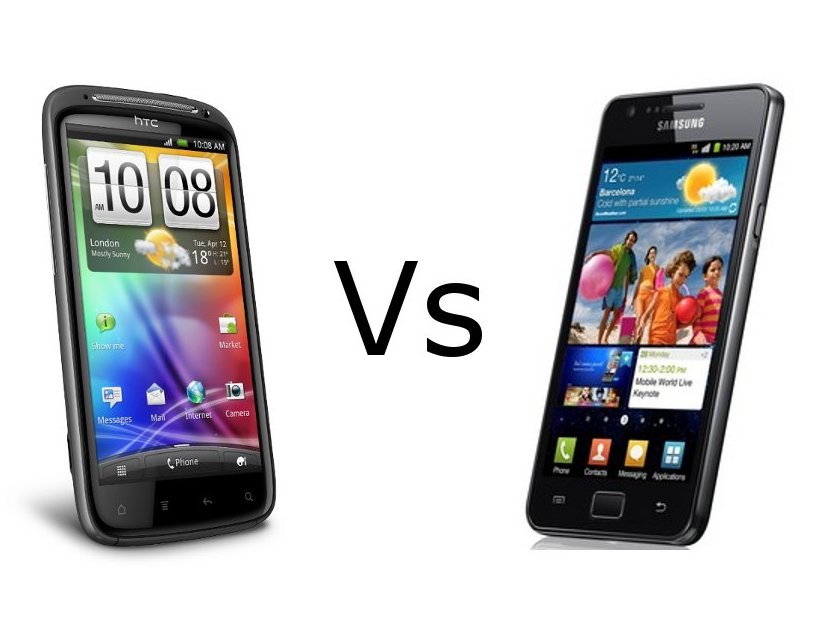
We've been treated to a cornucopia of high quality mobile phones recently, but it's a certain two that have got the tongues wagging: the dual-core majesty of the HTC Sensation and the Samsung Galaxy S2.
We've reviewed them both already, but so often we're asked the question of 'which should I buy?'
So here's TechRadar's detailed and in-depth look at the differences between the two handsets - and if you still can't decide after reading through our guide, then we can only suggest you toss a coin in your local phone retailer.
Build quality
There's a marked difference between the HTC Sensation and Samsung Galaxy S2 when it comes to the design of the devices – which basically comes down to thickness and weight.
The Sensation has a plastic and aluminium chassis combined with a relatively heavy glass front – this line-up means the 148g weight of the phone is lighter than the likes of the Desire HD, but markedly heavier than the Galaxy S2, which weighs in at a sublime 116g.
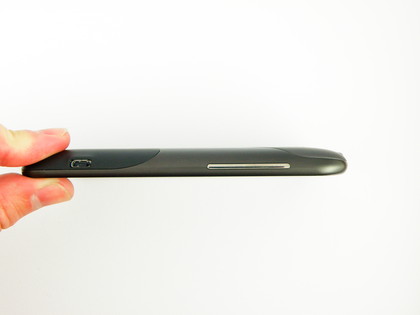
The Galaxy S2 is also by far the slimmer of the two phones, offering a stupidly thin chassis that's just 8.5mm thin, meaning it fits beautifully in any pocket and will make you panic on occasion simply because you might not be able to feel it and you'll think a pickpocket has come along.
Sign up for breaking news, reviews, opinion, top tech deals, and more.
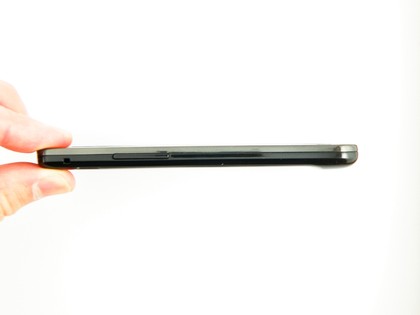
What's odd about the HTC Sensation is that despite the aluminium chassis, the phone still feels a little plastic-like in the hand. This is exacerbated by HTC's decision to make the whole rear of the phone an antenna, meaning the whole back peels away to leave just a phone and screen.
We like the theory, but in practice it's a veritable nightmare to get the back off, because your fingers constantly get in the way.
However, no matter how cheap the feeling of the Sensation, when you take the back off the Galaxy S2 it's infinitely more budget. The rear panel is made of flimsiest plastic out there it seems – not feeling good when taken off, but when attached firmly to the phone offers a cool mesh finish.
Winner: Draw. This is purely down to opinion – some will find the S2 too flimsy, some the Sensation too bulky. Both are very well built though with Gorilla Glass, and we promise you won't be upset by either.
Interface
Both the Sensation and the Galaxy S II are running Android 2.3.3, and both have had an overlay placed on top of Google's OS by their parents, clearly wanting to stamp their individuality onto their flagship smartphone.
We'll start by looking at the power under the finger of each device, and we're presented with a pretty even contest once more – both will react with the utmost speed, which is especially impressive on the HTC Sensation with its 3D Sense 3.0 overlay.
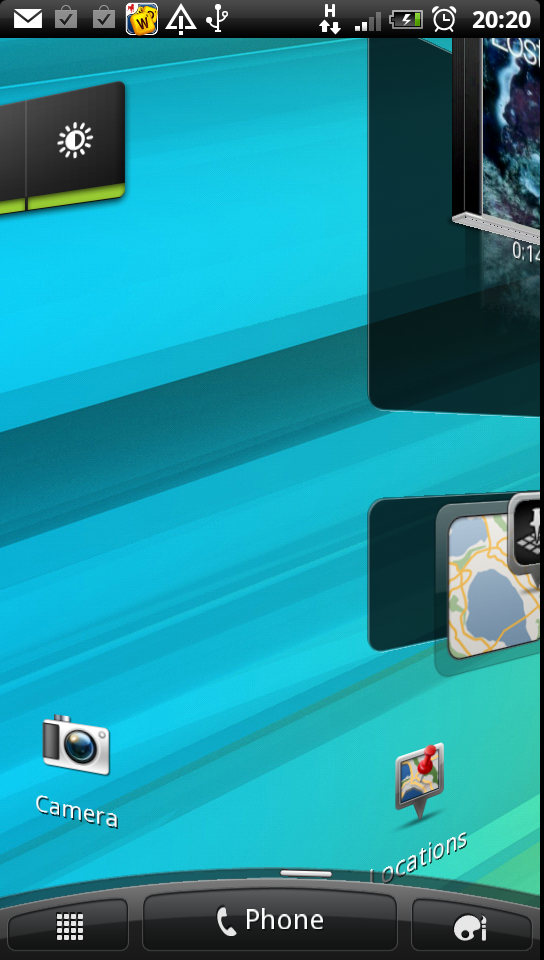
We've long stated we're fans of this UI, and with the new iteration it's even better, with upgraded widgets and cooler new spinning animations – plus that lock screen, with easy access applications, is to die for.
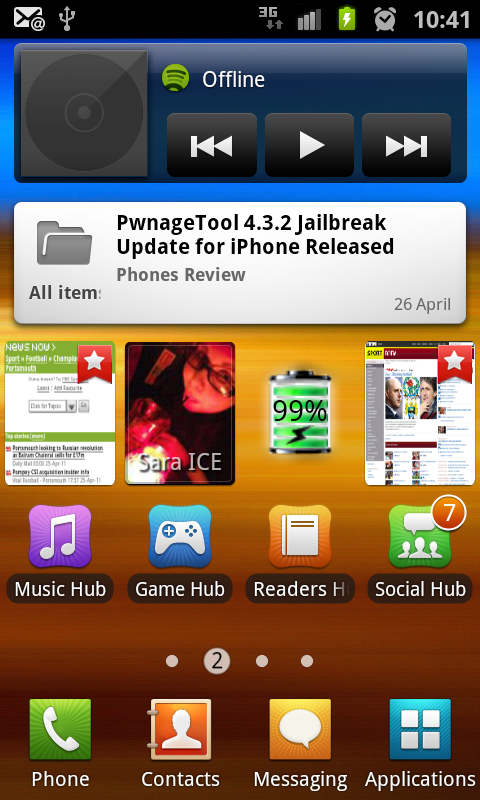
TouchWiz shouldn't be ruled out though, with a snap underneath the finger that we simply can't fault – the fact it scores nearly 50% better in benchmark tests than the Sensation is felt here.
A multitude of re-sizeable widgets, a simple menu system and more advanced music controls in the notifications bar are only let down by the cheap-feeling lock screen, that might as well have come straight from the developer's lab.
Winner: HTC Sensation, simply because Sense UI was already great, and just got a little better.
Screen
The screen technology on offer for both is markedly different here - we have the Super LCD from the HTC Sensation, and the Super AMOLED Plus from the Galaxy S II.
You'd think it's was a no brainer, as the Samsung technology has always been class leading, with superbly clear colours and contrast ratio - but HTC has a trick up its sleeve, packing in qHD resolution to take advantage of the dual-core 1.2GHz Qualcomm Snapdragon at the heart.
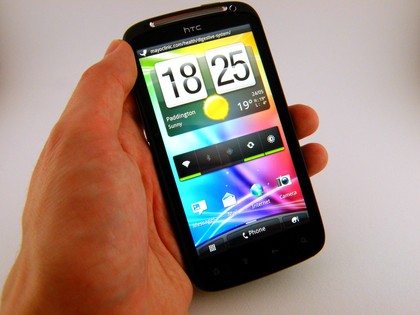
This means that the image on the 4.3-inch screen (which is actually thinner than the Galaxy S2 thanks to the aspect ratio) is that little bit sharper thanks to a great pixel density, contributing to great internet viewing and pleasant video playback. Colours are well reproduced in all aspects too, but the fact it still needs a backlight means that at high brightness the screen can look a little washed out.
Plus chuck a little bit of sunlight at the display and it will all but disappear at the lower brightness echelons as the curse of the HTC phone strikes once again. It's not terrible anymore, but it's certainly not something to crow about.
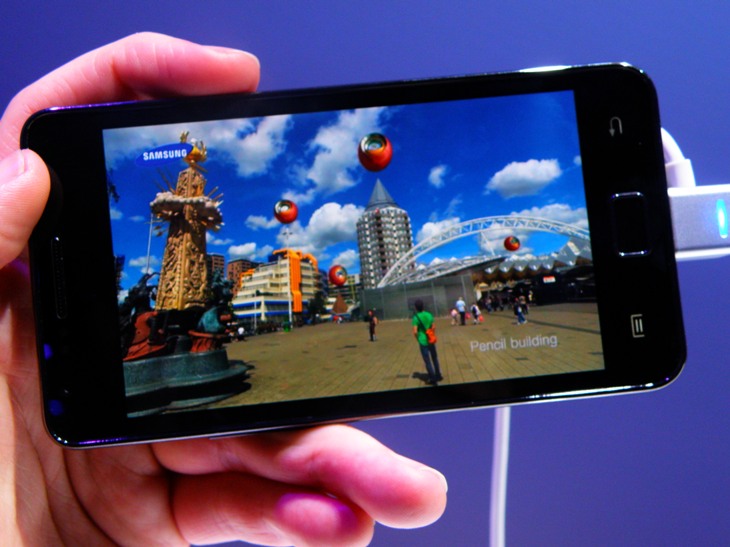
then we come to the Super AMOLED Plus, and it deserves that suffix in spades. When we first saw the phone in Barcelona, we were blown away by the quality, and it's a screen that just keeps giving no matter what you do with it.
From outdoor visibility in nearly every scenario (plus a special setting from Samsung to make it easier to see in really bright conditions) we love to look at the display, despite 'only' running WVGA (800 x 480) resolution.
From watching video to simply spinning through the homescreens, we can't help but love using the Galaxy S2 and cooing over its display.
Winner: The Samsung Galaxy S2. It's the display in the world right now and will need something special to knock it from its pedestal.
Current page: HTC Sensation vs Samsung Galaxy S2
Next Page HTC Sensation vs Samsung Galaxy S2
Gareth has been part of the consumer technology world in a career spanning three decades. He started life as a staff writer on the fledgling TechRadar, and has grew with the site (primarily as phones, tablets and wearables editor) until becoming Global Editor in Chief in 2018. Gareth has written over 4,000 articles for TechRadar, has contributed expert insight to a number of other publications, chaired panels on zeitgeist technologies, presented at the Gadget Show Live as well as representing the brand on TV and radio for multiple channels including Sky, BBC, ITV and Al-Jazeera. Passionate about fitness, he can bore anyone rigid about stress management, sleep tracking, heart rate variance as well as bemoaning something about the latest iPhone, Galaxy or OLED TV.